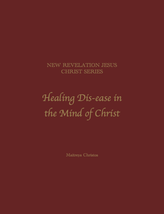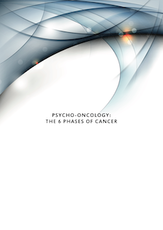Psycho-Oncology: Discover How Stress Causes Cancer
Phase 1 of Cancer: Inescapable Shock
Phase 2 of Cancer: Adrenaline Depletion
Phase 3 of Cancer: The Cancer Fungus
Phase 4 of Cancer: Niacin Deficiency
Phase 5 of Cancer: Vitamin C Depletion
Phase 6 of Cancer: Immune Suppression
LAVENDER OIL THERAPY FOR CANCER
In studies below, lavender oil has a remarkable ability to significantly lower stress hormone cortisol levels. As cancer is caused by and continually fuelled by chronic psycho-emotional stress (as outlined in the 6 phases of cancer), finding a way to lower these levels is thus a fundamentally crucial step. With the lowering of stress hormone cortisol levels, the body's adrenaline levels are able to return to normal, resulting in the restoration of niacin and vitamin C reserves, which are essential in preventing normal cells mutating into cancer cells through the Citric Acid Cycle of the mitochondria of the cell. In addition, lavender oil is known for its powerful ability to overcome depression and insomnia. Cancer can be categorised as "a chronic disruption of the deep-sleep cycle, caused by insomnia-induced psycho-emotional stress", which prevents the individual routinely entering the deep-sleep cycle, where the cancer-fighting 'melatonin' hormone is produced by the pineal gland of the brain. The addition of lavender is thus a two-fold approach of reducing stress and ridding insomnia.
STEP 1: PALM INHALATION OF LAVENDER OIL
Lavender oil is a gentle oil and is one of the few essential oils you can safely apply to the skin in its pure undiluted form. To begin, simply apply 3 drops of pure undiluted lavender oil to the palm of your hands and rub together until you feel a heat sensation in your hands. Cover your hands over your nose and mouth, and then breathe in deeply the fragrance through your nose for a period of 5 minutes. Repeat twice daily or every 8 hours for optimal cortisol modulating effect. It is also recommended to place 7 drops of lavender oil in either an oil burner or oil diffuser within your home, or to burn a very strong lavender scented candle.
STEP 2: MASSAGING THE SOLES OF FEET WITH LAVENDER OIL
The soles of the feet have the largest pores in the body. As a result, it is postulated that lavender oil is more easily assimilated by the body and then into the bloodstream through the feet. Coincidently, Jesus' feet were anointed by Mary of Bethany with spikenard or nard, of which the lavender species lavandular stoechas (known as Spanish or French Lavender) was one of twelve confirmed species. There are many reports of individuals massaging the soles of their feet with lavender oil (prior to bedtime) who have reported significant improvement in their ability to overcome insomnia and enter the deep-sleep cycle, where the hormone melatonin is produced. Melatonin is the primary hormone responsible for inhibiting cancer cell growth. It does this by producing interleukin 2 (IL-2) which governs the production of (cancer killing) immune system T cells, B cells, natural killer cells, macrophages and neutrophils, and is produced in the pineal gland of the brain between the hours of 1am and 3am in the morning during uninterrupted deep sleep. To begin, simply massage 1-2 drops of pure undiluted lavender oil (prior to bedtime) directly onto each of the soles of your feet.
OUR EXPERIENCE WITH LAVENDER OIL FOR INSOMNIA AND DEPRESSION
Glen Russell of Puna Wai Ora Mind-Body Cancer Clinic: Prior to my work in the field of psycho-oncology and embarking on the spiritual path, I suffered a debilitating illness which left me bed-bound for a number of months in the year of 2000. So debilitating was this illness, I was unable to walk (but for only a few steps at a time) and mostly I would crawl to the kitchen to feed myself and to go back to bed again. I was left with a condition known as environmental depression, brought upon by the debilitating effects of the illness. The darkness I experienced in my mind was all-consuming, but mostly in my dream-state where I seemed like I was in hell. During the daytime even my favourite tv programs felt depressing, and offered no comfort or reprieve. Somehow during this time I still managed to do the grocery shopping, walking a few steps at time, and I came across a strongly scented lavender candle in a glass. It was only $3 (which is all I could afford), but I knew I had to buy it. I lit the candle every day (for about 5 hours each day), and within one week I could no longer feel any depression at all, not even in my sleep! I was truly amazed. This was the turning point of my life, and I quickly found new vitality and energy, and was able to walk again and return to normal life. Coincidently, I had to go to the local hospital for a check up a few weeks later, and I read an article in a medical magazine about how lavender oil was being used in hospitals to treat depression. They even gave an example of a woman whose young son had overcame his depression and suicidal thoughts by her massaging lavender oil directly onto his entire body. I felt God had not only guided me to get the lavender oil candle to overcome my depression, but was now giving me a direct confirmation. And now here I am, many years later, passing on my own experience of this most wondrous essence-of-God.
WORLDWIDE STUDIES:
LAVENDER OIL SIGNIFICANTLY REDUCES DEPRESSION
1. A study at the Alexandru Ioan Cuza University, Romania, found rats experiencing dementia who were exposed to chronic levels of lavender oil essential oil daily (for 7 continuous days) while performing stress tests (including elevated-maze and forced swimming tests) had significantly reduced anxiety-like behaviour and inhibited depression, suggesting anxiolytic and antidepressant activity. [https://pubmed.ncbi.nlm.nih.gov/22402245/]
2. A clinical study of 140 women who had just given birth were studied by the Isfahan University of Medical Sciences, Iran for postpartum depression. The women were randomly divided into two groups. In the first group, women inhaled 3 drops of lavender essential oil (rubbed on the palms of their hands) every 8 hours for 4 weeks, while the other group did not receive this intervention. One month after intervention, only 2 women (2.9%) inhaling lavender essential oils were categorised as depressed, compared to 21 women (30%) in the control group. [https://www.ncbi.nlm.nih.gov/pmc/articles/PMC4815377/]
2. A clinical study of 140 women who had just given birth were studied by the Isfahan University of Medical Sciences, Iran for postpartum depression. The women were randomly divided into two groups. In the first group, women inhaled 3 drops of lavender essential oil (rubbed on the palms of their hands) every 8 hours for 4 weeks, while the other group did not receive this intervention. One month after intervention, only 2 women (2.9%) inhaling lavender essential oils were categorised as depressed, compared to 21 women (30%) in the control group. [https://www.ncbi.nlm.nih.gov/pmc/articles/PMC4815377/]
WORLDWIDE STUDIES:
LAVENDER OIL SIGNIFICANTLY LOWERS STRESS HORMONE CORTISOL
1. In a clinical trial to evaluate anxiety and blood cortisol levels on patients prior to open-heart surgery, researchers at the Golestan University of Medical Sciences, Iran, randomly divided 90 patients into two groups, each with 45 patients. The first group inhaled 2 drops of lavender essential oil on a guaze bandage for 20 minutes, while the second group inhaled 2 drops of distilled water on a guaze bandage for the same duration. Samples of blood cortisol levels were taken prior to inhalation and immediately after inhalation. Results showed blood cortisol levels in patients who inhaled lavender dropped on average 11.2% (from 16.76 to 14.88), compared to a mean drop of 2.6% in the control group (from 16.19 to 15.77). Anxiety levels were more improved in the lavender group. [https://www.ncbi.nlm.nih.gov/pmc/articles/PMC4979264/]
2. In a study conducted by the Department of Oral Physiology, Meikai University, Japan, researchers measured the saliva of 22 healthy volunteers for cortisol levels and FRSA (free radical scavenging activity, which protects against cancer) after sniffing either lavender or rosemary essential oils for 5 minutes. Results found both essential oils decreased salivary cortisol levels and only very low concentrations of lavender essential oil (1000 times dilution) were needed to increase FRSA values, compared to rosemary, which required high concentrations of 10 times dilution. [https://pubmed.ncbi.nlm.nih.gov/17291597/#affiliation-1]
2. In a study conducted by the Department of Oral Physiology, Meikai University, Japan, researchers measured the saliva of 22 healthy volunteers for cortisol levels and FRSA (free radical scavenging activity, which protects against cancer) after sniffing either lavender or rosemary essential oils for 5 minutes. Results found both essential oils decreased salivary cortisol levels and only very low concentrations of lavender essential oil (1000 times dilution) were needed to increase FRSA values, compared to rosemary, which required high concentrations of 10 times dilution. [https://pubmed.ncbi.nlm.nih.gov/17291597/#affiliation-1]
WORLDWIDE STUDIES:
LAVENDER OIL SIGNIFICANTLY INCREASES MELATONIN
1. In a study conducted by the University of Colima, Mexico, researchers analyzed the effects of aromatherapy with lavender essential oil on serum melatonin levels of 67 older adults of both sexes. Serum melatonin levels were measured before and after eight sessions of aromatherapy with lavender essential oil over a period of four weeks. Blood melatonin levels significantly increased by 30 percent after the intervention with aromatherapy (pg/ml): 102.3 ± 33.4 VS 132.5 ± 42.3, p = 0.000004. [https://pubmed.ncbi.nlm.nih.gov/31780012/#affiliation-1]
WORLDWIDE STUDIES:
LAVENDER OIL SIGNIFICANTLY REDUCES INSOMNIA
1. A study conducted by the Tokyo Ariake University of Medical and Health Sciences, Japan, studied the effects of aromatherapy essentials oils (lavender, lavender and sweet orange, and Japanese cypress wood blends) on the sleep disturbance of 19 elderly dementia subjects. Normal sleep patterns were observed for 20 days in the control period, and then observed for a further 20 days with inhalation aromatherapy. Subjects pre-selected which of the three oils they preferred and also the number of drops they preferred (between 2-5), which were then placed on a towel wrapped around their pillow each night. A significant improvement in uninterrupted sleep was observed. Here the mean duration of the longest sustained sleep period (DLSSP) in the control period was 173 minutes, compared to 186.2 minutes in the inhalation aromatherapy period. [https://www.ncbi.nlm.nih.gov/pmc/articles/PMC5376423/]
2. Researchers at the Kermanshah University of Medical Sciences, Iran, studied the effects of lavender and peppermint aromatherapy on 120 cancer patients who were admitted to the oncology ward of Taleghani Hospital, whose main inclusion criterion in the study was undesirable sleep quality. During their stay in the oncology ward, patients were randomly assigned to either receive three drops of lavender essential oil, peppermint essential oil, or distilled water mixed with 1% lavender essential oil. At 9pm every night (for 7 days), researchers would place these three drops on a cotton ball and attach this to the patient's collar for 20 minutes, which was then removed before going to sleep. While the experiment was only for a brief time, and the essential oils were only left on the patients collar for a very brief time (of 20 minutes), after the 7-day intervention, 8 out of 80 patients in the lavender and peppermint groups, and 2 out of 40 patients in the 1% lavender distilled water group, now reported desirable sleep quality. [https://www.ncbi.nlm.nih.gov/pmc/articles/PMC7132346/]
2. Researchers at the Kermanshah University of Medical Sciences, Iran, studied the effects of lavender and peppermint aromatherapy on 120 cancer patients who were admitted to the oncology ward of Taleghani Hospital, whose main inclusion criterion in the study was undesirable sleep quality. During their stay in the oncology ward, patients were randomly assigned to either receive three drops of lavender essential oil, peppermint essential oil, or distilled water mixed with 1% lavender essential oil. At 9pm every night (for 7 days), researchers would place these three drops on a cotton ball and attach this to the patient's collar for 20 minutes, which was then removed before going to sleep. While the experiment was only for a brief time, and the essential oils were only left on the patients collar for a very brief time (of 20 minutes), after the 7-day intervention, 8 out of 80 patients in the lavender and peppermint groups, and 2 out of 40 patients in the 1% lavender distilled water group, now reported desirable sleep quality. [https://www.ncbi.nlm.nih.gov/pmc/articles/PMC7132346/]
WORLDWIDE STUDIES:
LAVENDER OIL ANTI-CANCER EFFECTS
1. A joint study conducted by researchers at the Islamic Azad University, the Shahid Beheshti University and the Tarbiat Moallem University, Iran, was carried out to analyze the anti-cancer properties of lavender. The lavender species Lavandula angustifolia was used on the extract of lymphocytes from patient tumors with stage III and IV Hodgkin's lymphoma, as well as on two different cancer cell lines, including colon cancer cell line (SW742) and gastric cancer cell line (MKN45). Results indicated that lavender inhibited cell proliferation in both lymphocytes and cancer cell lines in vitro. Colon cancer cell line (SW742) was sensitive to cell death (apoptosis), beginning at concentrations of 30 µg/ml; gastric cancer cell line (MKN45) was highly sensitive to cell death, beginning at concentrations of 1 µg/ml; and lymphocytes from patient tumors were more resistant, demonstrating only concentrations of 100 µg/ml and above inhibits cell survival effectively. [https://www.ncbi.nlm.nih.gov/pmc/articles/PMC4142939/]
CONTRAINDICATIONS
WARNING: DO NOT SWALLOW LAVENDER ESSENTIAL OIL. Lavender essential oil can be poisonous and should not be ingested by mouth, although this does not apply to lavender teas. Lavender essential oil can also interact with blood pressure medications and central nervous system (CNS) depressants such as barbiturates (pentobarbital and phenobarbital) and non-benzodiazepine sleep medications (including Ambien and Lunesta).





